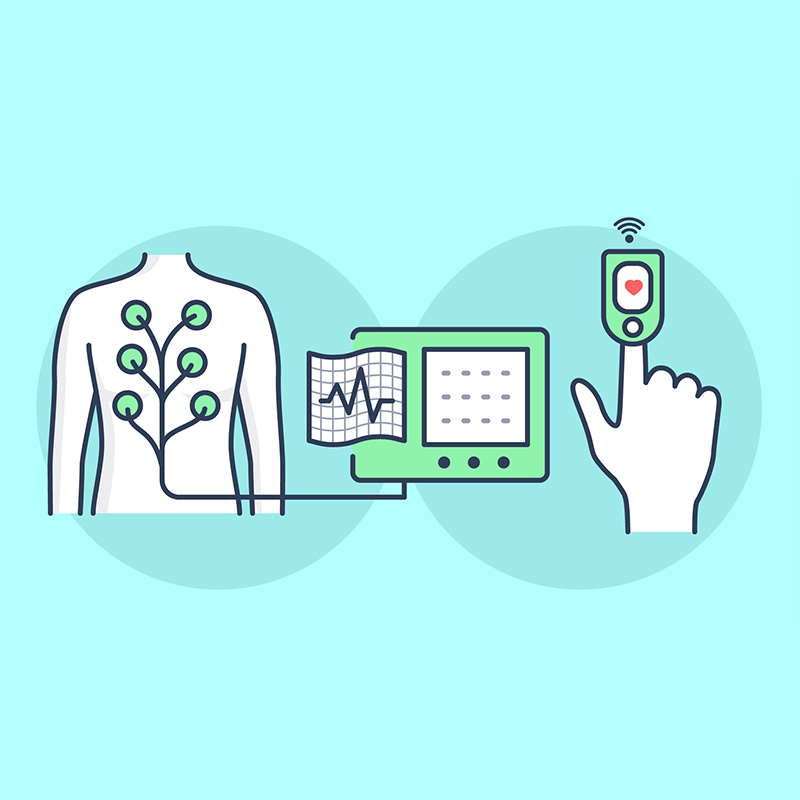Wu, Ranadive developing accurate, convenient home heart monitoring system
The nation’s leading cause of death, cardiovascular disease, is often referred to as the “silent killer” because detecting symptoms early is so difficult. Current testing methods are time-consuming, expensive and inaccessible, especially for low-income and other disadvantaged patients. But what if an alternative was literally at your fingertip? A University of Maryland expert in digital forensics and signal processing has received National Science Foundation (NSF) funding to use artificial intelligence to develop a heart monitoring method that’s as reliable as an electrocardiogram (ECG)—the gold standard used in hospitals and clinics——but as convenient as a device that can be worn at home. “Explainable Learning of Heart Actions from Pulse to Broaden Cardiovascular Healthcare Access” is a four-year, $1.2 million NSF “Smart Connected Health” grant. Professor Min Wu (ECE/UMIACS) is leading the four-year project. She is an affiliate of the Institute for Systems Research and is collaborating with Assistant Professor Sushant Ranadive (SPH), an expert in cardiovascular physiology and kinesiology. The team is developing an innovative way to understand the relationship between results from ECG—where electrodes are placed on the patient’s chest—and those from a method known as photoplethysmogram (PPG), which measures cardiac activity by monitoring changes in blood volume beneath the skin through a sensor that could be worn on a finger. (While it’s currently possible to obtain instant ECG data through a smartwatch or special smartphone attachment, these methods are impractical for long-term monitoring, the researchers said.) However, while PPG is cheaper, more convenient and more accessible than traditional ECG testing, it provides less direct information on cardiac activity and is not as well understood by researchers or clinicians. The main goal of the NSF-funded project is to compensate for that gap by using AI to reconstruct ECG-quality results with PPG data, said Wu. The research team plans to work closely with Clifton Watt, M.D., a cardiologist at of the University of California, San Francisco, to transfer the substantial ECG medical knowledge base to the PPG domain. Using an existing dataset from other researchers, her team has already carried out preliminary studies on a few hundred hospitalized patients. The NSF funding will allow exploration of a wide range of research questions the team hopes will result in a user-friendly self-monitoring system. “The bridge between ECG and PPG enabled by explainable AI could bring unprecedented opportunities to expand smart health knowledge and benefit public health,” Wu said. —Thanks to Maria Herd of UMIACS for this story, which first appeared in the Oct. 13, 2021 issue of Maryland Today. Want to learn more? Here’s a “Three-Minute Thesis” video by Min Wu’s student Xin Tian that explains this technology in more detail.
Related Articles: October 13, 2021 Prev Next |


